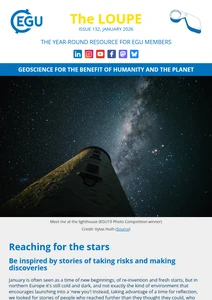President: Alexis Rouillard
(Emailst@egu.eu)
Deputy President: Emilia Kilpua
(Email)
ECS Representative: Andreas Wagner
(Emailecs-st@egu.eu)
The Division on Solar-Terrestrial Sciences (ST) considers all aspects of solar and heliospheric physics, specifically the solar-terrestrial connection. It covers the physical processes occurring on the Sun, in the solar wind, as well as in Earth's magnetosphere and ionosphere. Solar activity (e.g. coronal mass ejections, solar flares, solar energetic particle events) and the response of the near-Earth space environment to these solar phenomena are studied on a wide-range of temporal and spatial scales. Data analysis and interpretation of space-borne and ground-based data, as well as theoretical studies and different modelling techniques are used to better our understanding of how our local star defines the neighbourhood that we live in.
Latest posts from the ST blog
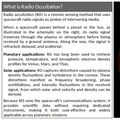
Probing the Solar Wind with Spacecraft Radio Occultation Signals: Chasing a Unified Method to Probe the Sun
Introduction The solar wind, a continuous outflow of charged particles from the solar corona, plays a fundamental role in shaping the heliosphere and driving space weather. Its interaction with planetary magnetospheres and atmospheres regulates magnetospheric dynamics, influences atmospheric escape, and governs space weather hazards that can affect both space- and ground-based technologies. Despite over six decades of study, many aspects of the solar wind remain poorly understood, particularly the processes responsible for its acceleration in the near-Sun region between 1.5 …
Read more
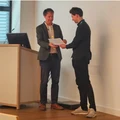
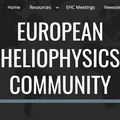
A talk with scientists across Europe: building the future of European heliophysics together
“Heliophysics studies the Sun, its sphere of influence, and how it affects the bodies in the solar system.” – this holistic approach to understanding our space environment is at the heart of the European Heliophysics Community (EHC), an open and inclusive network of researchers across Europe (https://www.heliophysics.eu/). The EHC promotes collaborative, curiosity-driven science that explores the plasma processes shaping our heliosphere, planetary magnetospheres, and ionospheres. But what does heliophysics mean to the people driving this science forward, and why is …
Read more
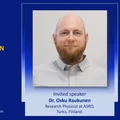
ST-ECS Networking Campfire: “How to Navigate Between Academia and Industry”
For many early-career scientists, one of the big questions is whether to pursue a career in academia, move into industry, or find a path that bridges both worlds. Each sector offers unique opportunities and challenges, and learning how to navigate between them can help you make confident, informed career decisions. To shed light on this topic, the Early Career Scientists (ECS) team of the Solar-Terrestrial (ST) division of the European Geosciences Union (EGU) is organizing a Campfire Event featuring Dr. …
Read more
Recent awardees

- 2025
- Julius Bartels Medal
The 2025 Julius Bartels Medal is awarded to
Richard Horne for outstanding work on understanding the acceleration and transport processes of charged particles in the inner magnetosphere, the formation of the radiation belts and their space weather effects.
Read more

- 2025
- Division Outstanding Early Career Scientist Award
The 2025 Division Outstanding Early Career Scientist Award is awarded to
Karin Dissauer for outstanding research in solar and extra-solar space weather research.
Read more

- 2025
- Outstanding Student and PhD candidate Presentation (OSPP) Award
The 2025 Outstanding Student and PhD candidate Presentation (OSPP) Award is awarded to
Carlos Castillo-Rivera Evaluation of Interhemispheric Asymmetry using Total Electron Content at High Latitudes During Geomagnetic Storms
Read more
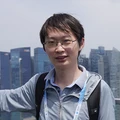
- 2025
- Outstanding Student and PhD candidate Presentation (OSPP) Award
The 2025 Outstanding Student and PhD candidate Presentation (OSPP) Award is awarded to
Qianyi Ma Multi-spacecraft Observations of Interplanetary Suprathermal Electrons in a Shock-ICME Interaction Region
Read more
Current issue of the EGU newsletter
In our January issue, we are choosing to reflect on the ambition and risks of science - not a new year, new you, but rather a steady determination to discover, based on our existing, deep wells of curiosity. Catarina Aydar talks about how exploration sometimes goes hand-in-hand with tragedy with the story of the first attempt of a teacher, Christa McAuliffe, to go to space, onboard the ill-fated Challenger, whilst Sabrina Minnick, shares the triumph of Jacobus Kapteyn revealing the proper motion of the stars over 100 years ago. Astrobiological chemist Silke Asche talks about her work searching for life on other planets, and András Zlinszky shares his tips for your best EGU General Assembly yet! Also don't miss our on all the upcoming webinars, newest publications, a brand new EGU open access journal, and a job vacancy in the EGU Executive office in Munich, Germany!
All this and much more, in this month's Loupe!
Read more









